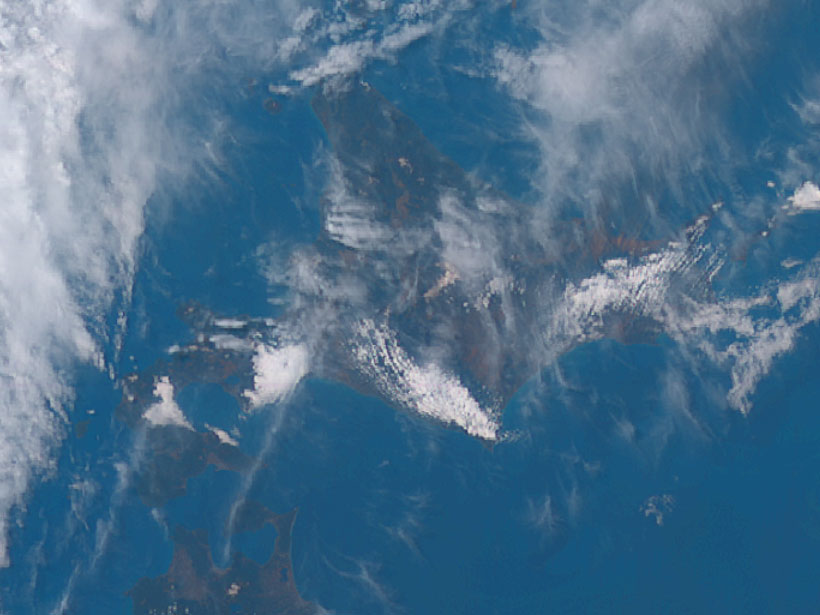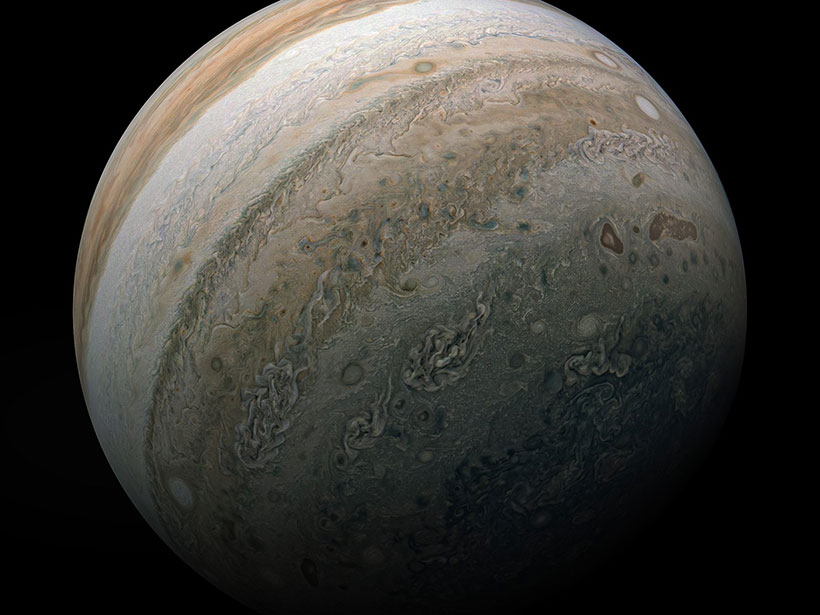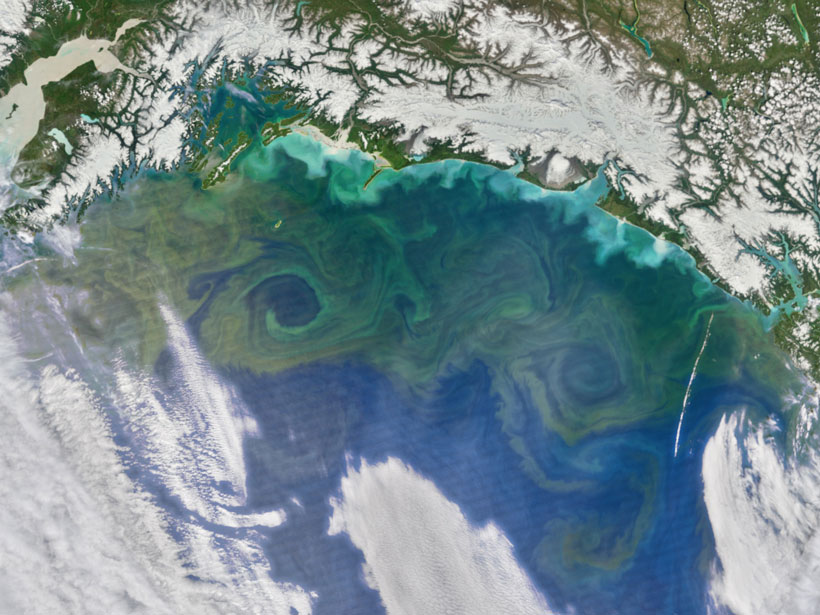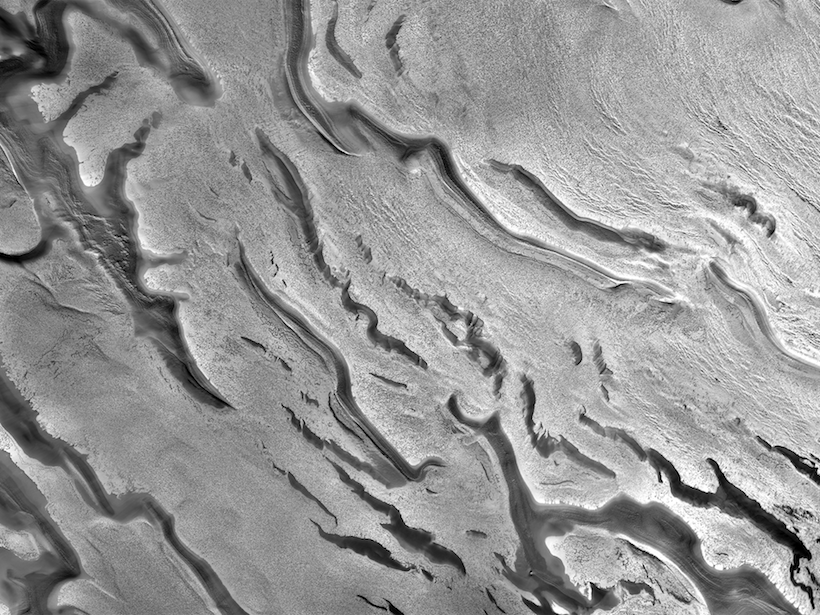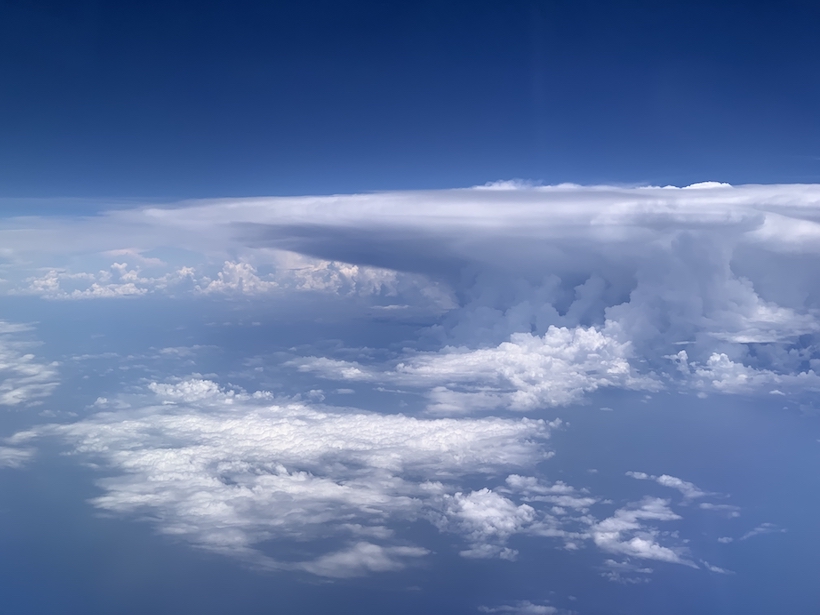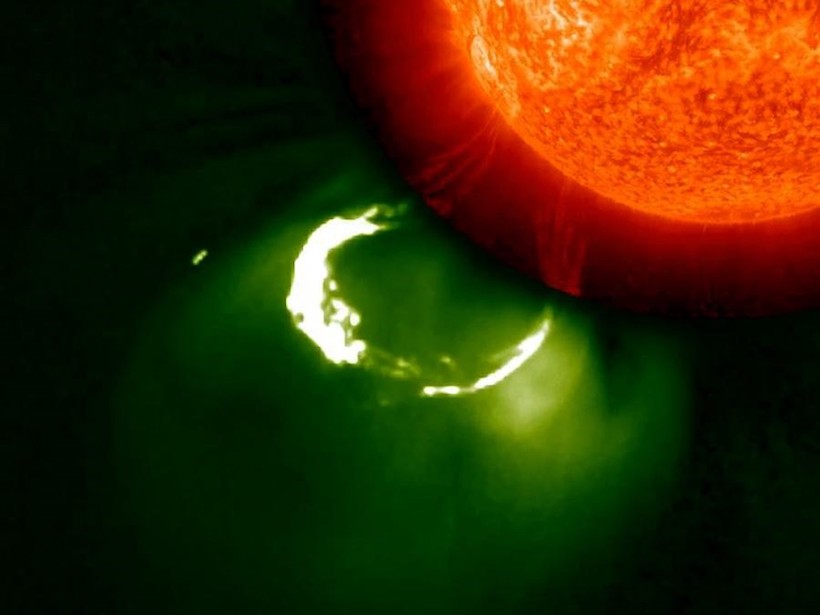Nuevas investigaciones examinan cómo los cambios en la ecología de la superficie influyen en la hidrología subterránea en el Ártico.
Research Spotlights
Research spotlights are plain-language summaries of recent articles published in AGU’s suite of 24 journals.
Modeling Gravity Waves with Machine Learning
Researchers used neural networks to better define the parameterizations necessary for modeling the distribution and characteristics of orographic gravity waves.
A Juno Era Model of the Jovian Magnetosphere
Updating a model developed during the Voyager flybys will enable better mission planning and a deeper understanding of Juno data.
A Promising Development for Detecting Ocean Productivity
A comparison of primary productivity measurements across the North Pacific Ocean demonstrates the potential for using autonomous instruments to discern effects of climate change on the marine food web.
A Precise Mosaic View of Mars’s South Pole
A new workflow improves the process of creating massive, accurate mosaics from spacecraft-captured images of a planet’s surface.
Predicting the Next Big Frost Quake
Frost quakes occur in boreal regions when rapidly expanding ice underground causes frozen soils to fracture. A recent frost quake in Finland has given scientists a rare look into how they form.
New Insights into Uncertainties About Earth’s Rising Temperature
A comparison of climate models finds that much of the variation in their predictions of global warming arises from differences in how they simulate the response of convective processes to warming.
The “Complicated” Complexity of Solar Storms
Researchers turned to crowdsourced science to identify patterns in coronal mass ejections.
Geomagnetic Storms Probably Don’t Cause Mass Cetacean Strandings
Solar-induced geomagnetic activity and mass strandings of whales and dolphins on shorelines both show seasonal patterns, but the beachings likely result from multiple environmental factors.
Simple Actions Can Help People Survive Landslides
New research provides practical advice to minimize landslide risk for individuals before, during, and after an event.


